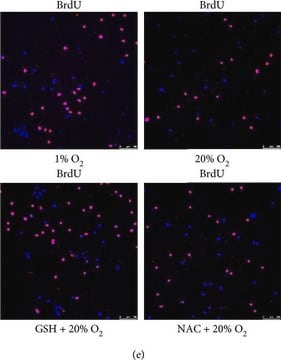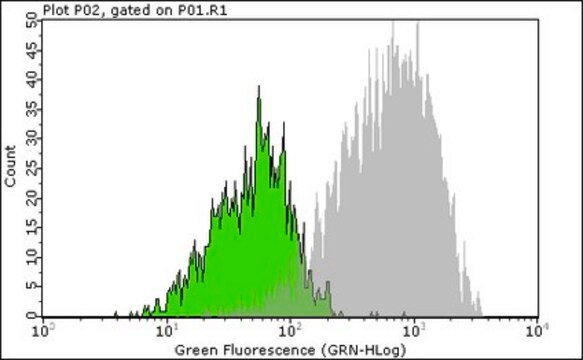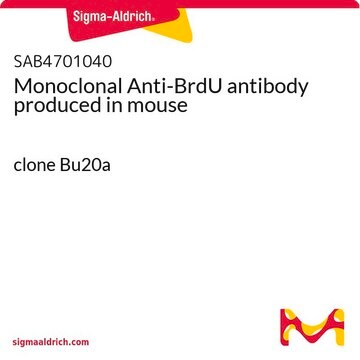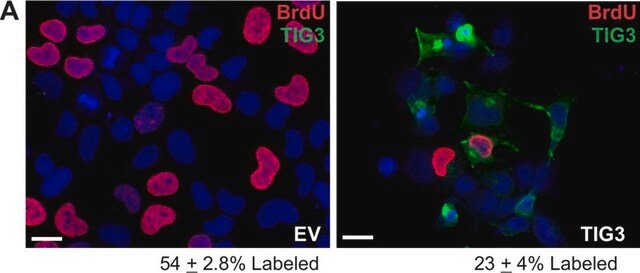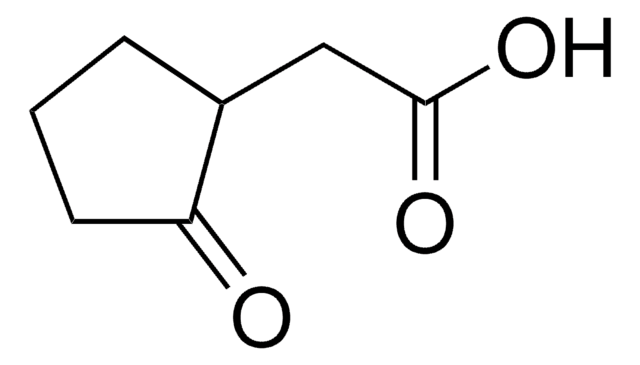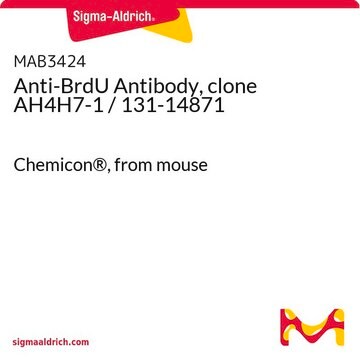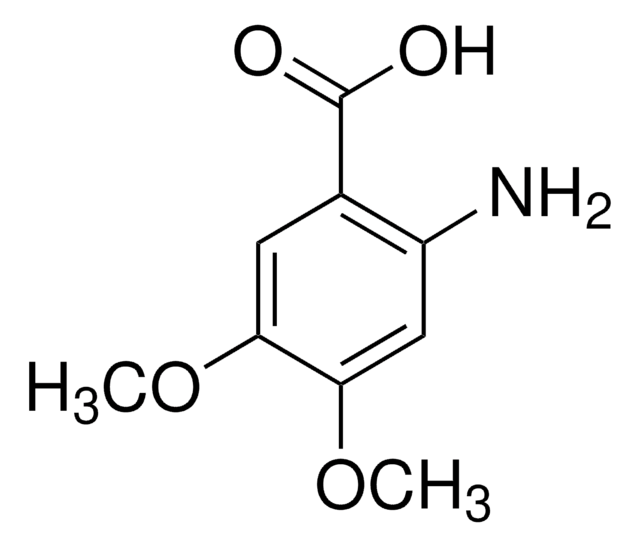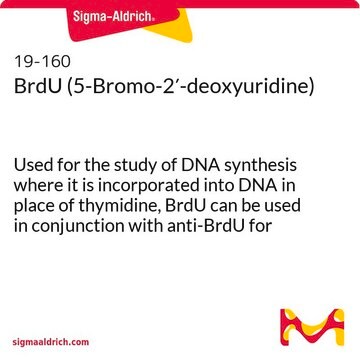MAB3262F
Anti-BrdU Antibody, clone PRB-1, FITC conjugated
clone PRB-1, Chemicon®, from mouse
Synonym(s):
BrdU
Sign Into View Organizational & Contract Pricing
All Photos(1)
About This Item
UNSPSC Code:
12352203
eCl@ss:
32160702
NACRES:
NA.41
Recommended Products
biological source
mouse
Quality Level
conjugate
FITC conjugate
antibody form
purified immunoglobulin
antibody product type
primary antibodies
clone
PRB-1, monoclonal
species reactivity (predicted by homology)
all
manufacturer/tradename
Chemicon®
technique(s)
flow cytometry: suitable
isotype
IgG1
shipped in
wet ice
target post-translational modification
unmodified
Related Categories
Specificity
Recognizes BrdU in ssDNA, free BrdU or BrdU coupled to a protein carrier. MAB3262 also reacts with iodouridine. Does not react with thymidine.
Immunogen
Iodouridine conjugated to ovalbumin.
Application
Anti-BrdU Antibody, clone PRB-1, FITC conjugated is a Mouse Monoclonal Antibody for detection of Bromodeoxyuridine also known as BrdU & has been validated in FC.
Flow cytometry: 1:20
Optimal working dilutions must be determined by the end user.
Optimal working dilutions must be determined by the end user.
Research Category
Epigenetics & Nuclear Function
Epigenetics & Nuclear Function
Research Sub Category
Cell Cycle, DNA Replication & Repair
Cell Cycle, DNA Replication & Repair
Physical form
Purified immunoglobulin conjugated to fluorescein. Liquid in PBS with 0.05% sodium azide pH 7.4
Storage and Stability
Maintain at 2-8°C in undiluted aliquots up to 6 months. Protect from prolonged exposure to light.
Other Notes
Concentration: Please refer to the Certificate of Analysis for the lot-specific concentration.
Legal Information
CHEMICON is a registered trademark of Merck KGaA, Darmstadt, Germany
Disclaimer
Unless otherwise stated in our catalog or other company documentation accompanying the product(s), our products are intended for research use only and are not to be used for any other purpose, which includes but is not limited to, unauthorized commercial uses, in vitro diagnostic uses, ex vivo or in vivo therapeutic uses or any type of consumption or application to humans or animals.
Not finding the right product?
Try our Product Selector Tool.
Storage Class
12 - Non Combustible Liquids
wgk_germany
WGK 2
flash_point_f
Not applicable
flash_point_c
Not applicable
Certificates of Analysis (COA)
Search for Certificates of Analysis (COA) by entering the products Lot/Batch Number. Lot and Batch Numbers can be found on a product’s label following the words ‘Lot’ or ‘Batch’.
Already Own This Product?
Find documentation for the products that you have recently purchased in the Document Library.
Customers Also Viewed
CCN1 induces hepatic ductular reaction through integrin ?v??-mediated activation of NF-?B.
Kim, KH; Chen, CC; Alpini, G; Lau, LF
The Journal of Clinical Investigation null
Yan Fan et al.
Neurotoxicity research, 38(3), 793-807 (2020-07-04)
The present study investigated the effects of forced overexpression of Phox2a/2b, two transcription factors, in the locus coeruleus (LC) of aged rats on noradrenergic and dopaminergic phenotypes in brains. Results showed that a significant increase in Phox2a/2b mRNA levels in
Songyu Li et al.
Cell death & disease, 11(4), 219-219 (2020-04-07)
DNA damage results in mutations and plays critical roles in cancer development, progression, and treatment. Targeting DNA damage response in cancers by inhibiting poly-(ADP-ribose) polymerases (PARPs) offers an important therapeutic strategy. However, the failure of PARP inhibitors to markedly benefit
Johana M Susanto et al.
International journal of oncology, 46(5), 2223-2230 (2015-02-20)
Despite incremental advances in the diagnosis and treatment for pancreatic cancer (PC), the 5‑year survival rate remains <5%. Novel therapies to increase survival and quality of life for PC patients are desperately needed. Epigenetic thera-peutic agents such as histone deacetylase
Yu Yan et al.
Oncology reports, 51(2) (2023-12-15)
The radioresistance of glioma is an important cause of treatment failure and tumor aggressiveness. In the present study, under performed with linear accelerator, the effects of 0.3 and 3.0 Gy low‑dose radiation (LDR) on the proliferation and migration of C6 glioma
Our team of scientists has experience in all areas of research including Life Science, Material Science, Chemical Synthesis, Chromatography, Analytical and many others.
Contact Technical Service